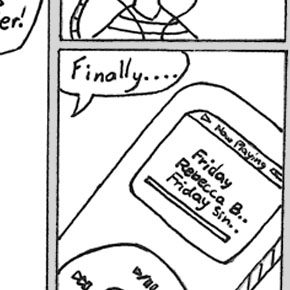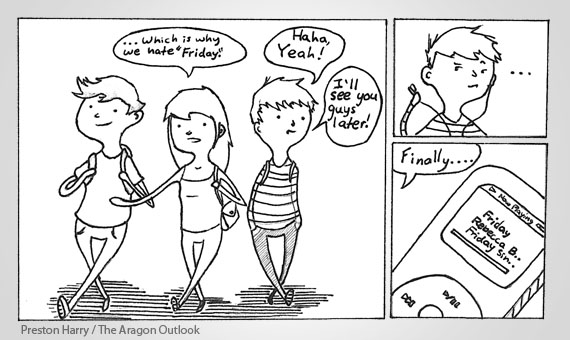
Senior Keaton Moe goes home from an exhausting day of school, walks into his room, and quickly turns on his iTunes. He scrolls down to the “N” section and proceeds to blast the 2000 hit-single, “Bye Bye Bye” by the boy band *Nsync. Often, Moe gets backlash when explaining that his favorite musical group is a forgotten commodity of the boy band era. “Many people dislike *Nsync, but I feel like [those people] do enjoy the music deep down inside …Their criticisms are just a product of them rejecting what they want to associate themselves with,” he explains.
Enjoying entertainment that society has deemed “bad” appears to be a growing trend. Music like Rebecca Black’s “Friday” and the recently popular sensation, “Gangnam Style,” have reached huge audiences due to the wide accessibility offered by the Internet. “One person talks about it so everybody wants to know what they are talking about. Then, everybody listens to it and if it’s entertaining, other people want to hear it,” explains sophomore Sienna Williams.
Black’s music, full of dreadful singing and repetitive lyrics, is bad, yet people seemed to enjoy it enough to watch it. Freshman Ryan McAullife says, “It all really depends on the style that people like and how catchy the song is.” He says, “People watched Rebecca Black because it’s just funny.”
Still, the definition of “bad” entertainment is not concrete. “Friday,” though criticized for its lyrics, can be considered a quality video in terms of both audio and video editing, even though its popularity can be attributed to other factors. McAullife explains, “People were just not serious. The second she started singing, people were just laughing and having a good time.”
Moe agrees, “In order for someone to believe entertainment is good or bad, they have to take it seriously,” he explains. “People laugh at Rebecca Black because she just wasn’t serious.”
Similarly, “Gangnam Style” features provocative dancing and a catchy beat. Many disregard the song’s lyrics as nonsense, but its distinguishing beat can frequently be heard on major radio stations. Considering that few students understand the lyrics, it is a wonder that many can be seen mimicking the undulating dance patterns.
Curiously, people often enjoy this kind of entertainment solely because of its lack of a serious vibe. Sophomore Matt Savage, a fan of big budget action movies, enjoys the excitement. He says, “Although they don’t put much time into the actual stories and characters, they put their energy into great explosions and scenes. Not a lot of time is really put into its purpose. Not all movies should be like this, but the ones that are are very entertaining.” Sophomore Kevin Ruttenberg justifies his hidden love of the hit television show “Glee.” “It allows me to escape my daily problems and go along for the ride. It’s so stereotypical and takes the stereotypes to such a high level that it makes the show humorous and entertaining.”
Even though the mainstream media and society often criticize such media, “bad” entertainment is becoming a significant force in viral media. For the average teenager, perhaps “bad” entertainment is nothing new, for from the reception of recent viral hits, it appears that such entertainment has achieved the essential ambition of all entertainers – that is, simply to entertain.




